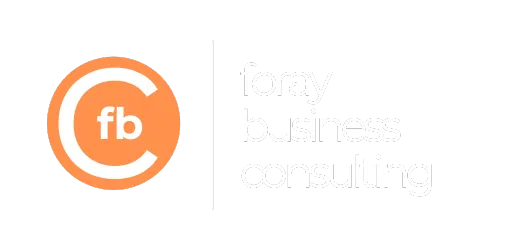
Community Bank Term Loans
Community Bank Term Loans: A Comprehensive Guide for Small Businesses
Term loans from Community Bank offer flexible and reliable financing options for various financial needs. Whether you are looking to fund a business expansion or manage personal expenses, Community Bank provides tailored solutions to fit your requirements. Our term loans feature simple repayment plans with fixed monthly payments, making it easier to budget and manage your finances.
At Community Bank, we prioritize providing excellent customer service, ensuring that you have a smooth and informed experience throughout the loan process. We understand that taking on a loan is a significant decision, and our goal is to help you make the best choice for your situation. Explore our wide range of loan options, including unsecured term loans and CD secured loans, to find the best fit for you.

Applying for a term loan with us is straightforward and convenient. Our application process is designed to be quick and efficient, reducing the stress associated with securing financing. Visit our website to learn more about how our term loans can support your financial goals.
Key Takeaways
Our term loans offer flexible financing with fixed monthly payments.
We ensure a smooth loan process with excellent customer service.
Applying for our term loans is quick and efficient.
Understanding Community Bank Term Loans
Community bank term loans provide essential financial support to businesses for various needs such as equipment purchases, facility expansion, and working capital enhancement. These loans come with competitive rates and tailored repayment schedules.
Definition and Key Features
Community bank term loans are designed for businesses needing a specific amount of money, repayable over a set period with either a fixed or floating interest rate. These loans often cater to significant investments, such as equipment and infrastructural improvements.
Key Features:
Credit Approval: Businesses must undergo a credit approval process to qualify.
Competitive Rates: Interest rates are often competitive to attract businesses.
Repayment Schedule: Loans come with specified repayment schedules, ensuring manageable payments over time.
The goal is to support our financial growth through structured financial solutions.
Types of Term Loans Available
Community banks offer various term loans to suit different business requirements.
Short-Term Loans: Typically last one to three years and are ideal for working capital needs. They help manage operational costs efficiently.
Medium-Term Loans: These loans range from three to five years. They are suited for equipment purchases, offering manageable monthly payments.
Long-Term Loans: These loans extend beyond five years, often up to ten years or more. They are perfect for large-scale expansions and significant investments, providing an extended period to repay the loan comfortably.
By understanding these types, we can choose the best financing option for our business needs. Each loan type supports specific financial goals, ensuring businesses can thrive sustainably.
The Benefits of Community Bank Term Loans
Community bank term loans offer numerous advantages, such as strong relationship building with local banks and customized loan solutions tailored to your unique needs. Drawing from our deep ties within the community, we can offer more competitive rates and a variety of terms that large banks often cannot match.
Relationship Building with Local Banks
One of the key benefits is the opportunity to develop close relationships with local banking professionals. At community banks, we know our customers personally, which helps us better understand your financial needs and provide more personalized services. This relationship is not just transactional; it is built on trust and mutual respect.
Engaging with a local bank means you are more than just an account number. With localized decision-making, our loan officers are more accessible for face-to-face meetings. This personal touch can greatly enhance your comfort level and confidence in the loan process. Additionally, as we grow together, our success helps improve the local economy, creating a cycle of prosperity.
Customized Loan Solutions
Community banks pride themselves on offering loan solutions tailored to the specific needs of our customers. Unlike large national banks that follow a rigid set of guidelines for credit approval and interest rates, we evaluate loans based on a more flexible and individualized approach. This allows us to offer the most fitting term loans for your unique situation.
We can customize repayment schedules to match your cash flow requirements, reducing the stress of making payments during lean times. With competitive rates and personalized loan terms, your financial needs are met with precision. By keeping your loans within the community, we can also offer ongoing support and adjustments if your circumstances change. This way, you can rest assured that your financial well-being is always our top priority.
The Application Process
Applying for a community bank term loan involves compiling necessary documents and undergoing a credit review. This process ensures that your business is eligible for financing and that the bank understands your financial standing.
Preparing Your Application
Preparing your application is the first step. We need to collect specific documents.
First, gather your business's financial statements. This includes balance sheets, income statements, and cash flow statements. Ensure these documents reflect the most recent fiscal period.
Next, prepare your personal financial statements. These help in assessing the owner's financial health, which is crucial for credit approval.
Also, gather details on the collateral you plan to offer. Collateral secures the loan and may be required depending on the loan amount and terms.
Finally, ensure your business plan is up-to-date. A solid business plan outlines your business's goals, strategies, and market analysis. This shows the bank that you have a clear path to success.
Understanding the Credit Review
The credit review process is essential for determining your eligibility for loan terms and services. During this stage, the bank assesses your credit history, business performance, and collateral.
First, we will review your credit score. A higher credit score can lead to more favorable loan terms. Ensure your credit history is accurate and address any discrepancies beforehand.
Next, we will evaluate your business's financial health. This involves analyzing the provided financial statements to ensure consistent revenue and manageable expenses.
Collateral evaluation is another crucial part of the review. The bank needs to ensure the collateral offered can cover the loan amount in the event of a default.
Finally, we consider the overall risk profile. This includes reviewing the business plan and the industry in which your business operates. A strong, well-documented plan can favorably impact the decision.
By thoroughly preparing and understanding each part of the process, you can increase your chances of a successful loan application.
Loan Terms and Considerations
When considering term loans, it's crucial to focus on interest rates and repayment schedules. These factors greatly influence the overall cost and manageability of the loan.
Interest Rates Explained
Interest rates are the cost of borrowing money, expressed as a percentage. For community bank term loans, the rates can vary based on several factors including credit score, loan amount, and loan term. We often see competitive rates offered to attract borrowers with solid credit profiles.
An example to illustrate: If we obtain a loan of $10,000 with an interest rate of 5%, the annual cost of borrowing would be $500. The rate may be fixed or variable. A fixed rate remains constant for the life of the loan, leading to predictable monthly payments. Variable rates, on the other hand, can fluctuate, affecting the overall cost of the loan over time.
Taking time to negotiate rates and understand their structure can lead to significant savings on loan repayments.
Repayment Options and Schedules
Repayment schedules determine how and when the loan will be repaid. These schedules can be tailored to suit our cash flow and financial planning. Common options include:
Monthly payments: Fixed repayments every month, the most common method.
Biweekly payments: Payments every two weeks, leading to quicker repayment and less interest.
Lump-sum payments: Large, single payments to reduce the principal balance swiftly.
An example: With a $10,000 loan, we may opt for a repayment schedule of 3 years, translating to monthly payments of about $300 plus interest. Understanding different repayment options and schedules ensures we make informed decisions that align with our financial strategy. For businesses, these schedules can impact cash flow management, allowing better control over regular expenses. Negotiating flexible terms can lead to more manageable debt and a healthier financial position.
Leveraging Loans for Business Growth
Business loans play a critical role in helping companies achieve significant milestones. By funding expansion projects and managing working capital needs, loans can drive growth and stability.
Financing Expansion Projects
When businesses look to grow, one key requirement is financing. Community bank term loans can provide the necessary capital for major investments like expanding facilities, purchasing new equipment, or entering new markets. These loans offer competitive rates and terms aligned with cash flow, making them an effective tool for growth.
For instance, if we need to expand our warehouse, a term loan can cover construction costs and equipment purchases. This allows us to handle larger inventories and improve operational efficiency. By securing financing from a community bank, we can ensure personalized service and flexible terms tailored to our specific needs.
Managing Working Capital Needs
Maintaining adequate working capital is crucial for day-to-day operations. Community bank loans help us manage cash flow by covering short-term needs like payroll, inventory, and operational expenses. These loans provide liquidity when revenue cycles are inconsistent, ensuring smooth business operations.
For example, during peak seasons, we might need additional inventory but lack the immediate funds. A term loan can bridge this gap, allowing us to meet customer demand without financial strain. This flexibility in managing working capital helps maintain stability and supports ongoing business activities.
By leveraging these loan options, we can effectively plan and execute growth strategies while maintaining financial health and operational efficiency.
Special Loan Products
We offer various special loan products designed to meet the unique needs of our customers. These options can provide specific benefits, such as lower interest rates or flexible repayment terms, which can be especially helpful for businesses.
SBA Loans and Programs
SBA Loans are designed to help small businesses access the financing they might not qualify for through traditional loans. These loans are backed by the Small Business Administration, reducing the risk to lenders and making it easier for small businesses to secure funding.
We offer several SBA loan programs, including the popular 7(a) loan program, which provides up to $5 million for various business needs. Another option is the 504 loan, which can be used for purchasing major fixed assets like real estate or equipment.
These loans typically require collateral but come with longer repayment terms and favorable interest rates. Our team works closely with business owners to navigate the SBA application process and determine the best loan option for their specific needs.
Lines of Credit vs. Term Loans
Lines of Credit and Term Loans serve different purposes and suit different financial needs. A line of credit provides flexible access to funds up to a certain limit, which can be drawn upon as needed. This option is ideal for ongoing expenses or short-term financial needs.
In contrast, term loans are suited for specific, significant expenses such as equipment purchases or expansions. With a fixed repayment schedule and interest rate, term loans offer predictability and structure.
Both options may require collateral, but they differ in how they are repaid and used. Understanding the difference can help businesses choose the right type of loan for their situation.
For more information, you can visit our pages on personal loans at Community Bank and specific programs at Community Bank Oregon & Washington.
Dealing with Financial Challenges
Community banks often face financial hurdles such as unexpected expenses and fluctuating cash flow. It’s crucial for us to address these challenges head-on and explore viable options like loan restructuring and refinancing to maintain financial stability.
Addressing Unexpected Expenses
Unexpected expenses can strain our finances and disrupt our cash flow. To tackle this, we need to create a financial cushion. This can involve setting aside a portion of our earnings as an emergency fund.
We should also conduct regular financial audits. They help us identify potential future expenses. By examining our budgeting practices and cutting unnecessary costs, we can better manage sudden financial needs.
Moreover, having a contingency plan is essential. This plan can guide us on steps to take when faced with unplanned expenses, ensuring we stay financially sound.
Loan Restructuring and Refinancing Options
When facing financial challenges, restructuring and refinancing our loans can provide relief. Loan restructuring involves altering the terms of an existing loan, which might include extending the repayment period or reducing interest rates. This can ease our immediate financial burden by lowering monthly payments.
Refinancing is another option. It involves replacing an existing loan with a new one, often at a lower interest rate. By refinancing, we might secure better terms and improve our cash flow.
Both options require careful consideration of our financial situation. We need to weigh the benefits and any potential long-term impacts. Consulting with financial advisors can also guide us in making informed decisions that best fit our needs.
Protecting Your Investments
Protecting your investments starts with understanding how collateral and asset protection works. These elements are crucial in safeguarding your financial interests.
Collateral and Asset Protection
When we use our assets, like stocks, bonds, or property, as collateral for a loan, it's essential to ensure they're well-protected. By offering collateral, we secure the loan, making it safer for the lender and potentially getting a better interest rate for ourselves.
Collateral can include various investments such as savings, bonds, or property. Banks often allow us to borrow against these assets, though the amount we can borrow is usually a percentage of the asset's value. For example, some banks might let us borrow up to 50% of our investment's total worth.
To safeguard our account and investments, we must diversify our collateral. Relying on a single asset type increases risk if that asset's value drops. Diversification helps spread out this risk, ensuring that even if one type of investment underperforms, our overall collateral remains stable.
Lastly, it's important to review the terms offered by different financial institutions. These terms can vary, impacting how much we can borrow and the interest rates applied. By closely examining these details, we can make informed decisions that protect our assets effectively.
Frequently Asked Questions
We address the most common inquiries about community bank term loans, including eligibility criteria, interest rates, and loan types.
What are the eligibility criteria for obtaining a term loan from a community bank?
Eligibility for a term loan from a community bank often includes a good credit score, stable income, and adequate collateral. Some banks may also require a history of responsible borrowing.
How do I calculate the monthly payments on a community bank term loan?
Monthly payments can be calculated using the loan amount, interest rate, and loan term. Most community banks provide loan calculators on their websites to help with this.
What are the typical interest rates for auto loans offered by community banks?
Auto loan interest rates at community banks vary but typically range between 3% and 7%. These rates depend on factors such as credit score, loan term, and the type of vehicle being financed.
What are the different types of personal loans available at community banks?
Community banks offer various personal loans, including secured and unsecured loans, debt consolidation loans, and personal lines of credit. Each type serves different financial needs and conditions.
What are the advantages of choosing a community bank for small business financing?
Community banks offer personalized service, local market knowledge, and flexible terms for small business financing. They understand the specific needs of their local businesses better than larger banks might.
How does the loan application process at community banks differ from that of larger financial institutions?
The loan application process at community banks is often more straightforward and faster. They provide more personalized service and may require less documentation, making them a convenient choice for borrowers.
GET FUNDED IN 1-2-3 EASY STEP
Checking your rate won’t affect your credit score

Apply Online
- Fast & Easy Online Application Our loan specialist will contact you Or call us at our phone number: (905) 594-1139

Review Your Options
-You will have your decision in minutes. No paperwork, no waiting

Get Funded
- True term loans – $5,000 – $1,000,000 Receive funding in as fast as 1 day
Foray Business Consulting © | ALL RIGHTS RESERVED | LOANS SUBJECT TO LENDER APPROVAL
The operator of this website is NOT a lender, does not make offers for loans, and does not broker online loans to lenders or lending partners. Customers who arrive at www.foraybusinessconsulting.com are paired with a lender or a lending partner, and redirected only to lenders or lending partners who offer business loan products.

